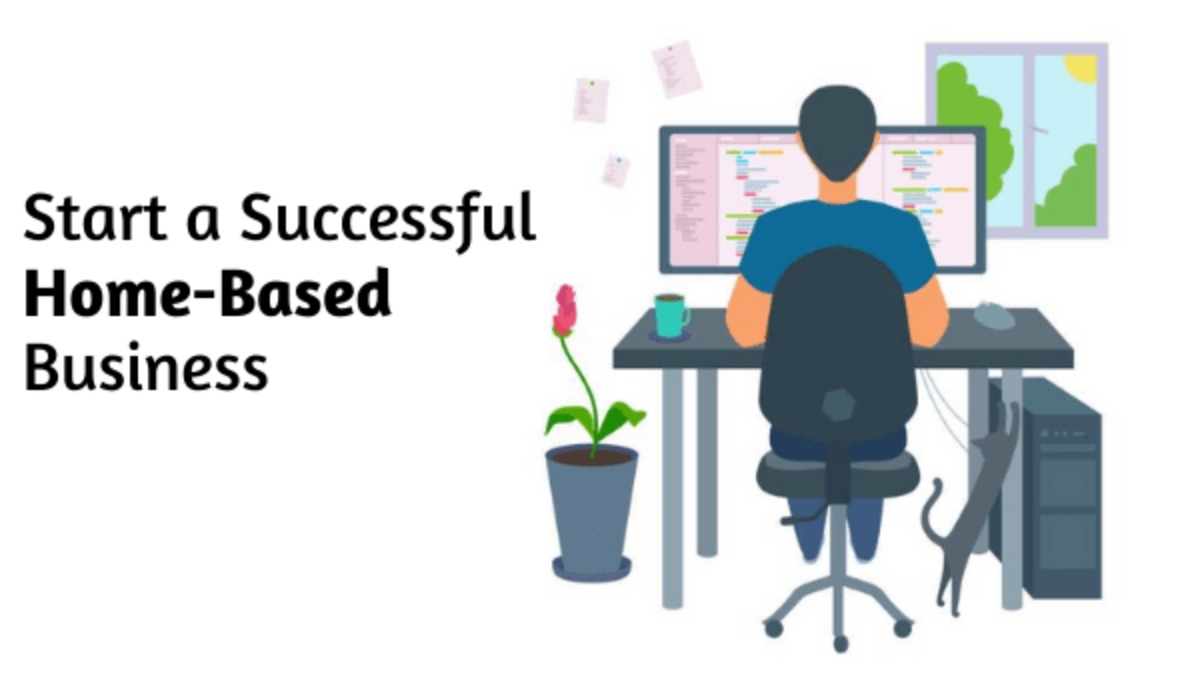
Many people want to start a home-based business but don’t know where to start, so they keep putting it off. If you’re thinking about starting a business from home, here are 7 steps to get you started.
Start by making a list of home-based business ideas that you might like. One option is to leverage your existing skills to offer a service-based business. When starting a service-based business, you don’t need to keep track of inventory or manufacture products. You can offer your customers the following services:
You could also start a dropshipping business, sell homemade products on Etsy, open a home-based bakery, or create digital products. The possibilities are endless, so make a list of ideas and choose the ones you think are most appropriate.
Once you’ve identified a business idea that interests you, it’s time to write a business plan.
A business plan serves as a road map for your business, providing you with clarity. A strategic business plan is also important if you want to attract investors or apply for small business financing.
Your business plan will include an overview of your target market, what you want to sell, and how you will attract and keep customers. If you get stuck, the SBA offers a free business planning template.
The business structure you choose will affect many different aspects of your business, from how much tax you pay to whether you can hire employees. There are four major types of business structures to choose from:
Once you’ve decided on your business structure, you’ll need to open a business bank account. A business bank account separates your personal and business finances, making things much easier during tax season.
Before you can open a business bank account, you’ll need to apply for an Employer Identification Number (EIN). Your EIN is a federal tax identification number for your business. You can apply for one for free on the IRS website and receive your EIN within minutes.
Taxes are one of the most confusing aspects for many small business owners, so we recommend hiring an accountant. Your accountant will help you manage your quarterly and annual taxes and help you determine which expenses you can deduct.
Once you have your plan and a legal structure in place, it’s time to test out your business idea and start selling your products or services. Business success is measured by profitability, so you need to make sure there’s demand for what you offer.
You’ll probably fail at first, and it may take some time for you to find your footing. Be prepared to learn from your failures and adapt your strategy. The key is to create the right solution that meets your customer’s needs.
Depending on where you live, your state or county may have specific requirements for home businesses. Most residential zoning laws allow home-based businesses, provided the home is used primarily as a residence and the business does not cause a nuisance to neighbors. However, it’s a good idea to check with your city or county clerk’s office to see if there are any restrictions on home-based businesses.
The most common requirement a small business may encounter is a licensing requirement. You’ll probably need to apply for a general business license that allows you to operate in business activities within that jurisdiction. You may also need to obtain a professional license from your state if you run a home care business or provide financial or legal services.
One of the biggest challenges for business owners is learning how to balance their home and professional lives. Combining the two can be easy, especially if your home is also your office. No one can achieve the perfect work-life balance, but there are many ways to achieve it successfully.
First, set up a designated area in your office where you can focus solely on work. We also recommend setting a schedule based on your optimal work hours and creating a daily to-do list to ensure you always get your top priorities done.
But most importantly, don’t jump right back into work after your workday is over. It’s common to check email at night or catch up on things on the weekend, but working too much can lead to burnout.
And most importantly, don’t jump right back into work after your workday is over. Checking emails at night and taking weekends off is common, but working too much can lead to burnout.
May is Small Business Month, a time to honor and recognize the achievements of the… Read More
Swiss International University (SIU) is on track to be one of the world's most respected… Read More
In a session that left students buzzing with fresh ideas and practical insights, Invertis University… Read More
At the 21st Shanghai International Automobile Industry Exhibition, which is surging with the wave of… Read More
Liverpool, UK—House of Spells and Comic Con Liverpool are once again collaborating to bring the… Read More
Introduction In India's booming EdTech space, there's one name that's making waves among Telugu students… Read More